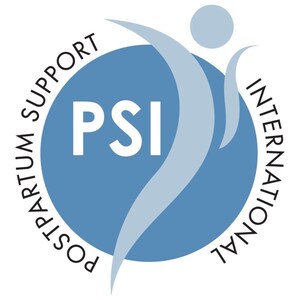
One in Five Mothers Experience Mental Health Disorders During or
After Pregnancy; Free Support and Treatment are Available, Accessible, and Effective
PORTLAND, Ore., May 5, 2025 /PRNewswire/ -- May brings National Maternal Mental Health Month, World Maternal Mental Health Day (May 7), and Mother's Day (May 11), making it an ideal time to talk about perinatal mental health (PMH) and to educate mothers and the people in their lives about postpartum depression and other PMH disorders. Nonprofit Postpartum Support International (PSI) is working to improve PMH disorder awareness and access to free support and care while reducing stigma around perinatal mental health disorders.
PMH disorders are the most frequent complications of childbearing. They are also ranked among the top underlying causes of pregnancy-related deaths in the U.S. Although postpartum depression is commonly cited, other PMH disorders include anxiety, obsessive-compulsive disorder, post-traumatic stress disorder, bipolar disorder, and psychosis.
Each May, PSI puts extra emphasis on educating the public during National Maternal Mental Health Month. May is also when Americans celebrate mothers and motherhood, which is anything but joyful for those suffering from a PMH disorder. Research shows:
- PMH disorders affect 800,000 people a year, but only 25% of them receive treatment.
- One in five women and at least one in 10 men experience depression or anxiety during the perinatal period, which includes pregnancy, post-loss, and 12 months postpartum.
- Despite improvements in the understanding of these disorders, each year, hundreds of thousands of parents silently suffer because they don't know what they are experiencing is common and treatable and they feel embarrassed and ashamed.
"After my son was born in 1994, I suffered from postpartum depression and anxiety, and despite the fact that I was a mental health professional, I did not recognize my own condition – I just thought I was a terrible mom," said Wendy Davis PhD, PMH-C, president and CEO of Postpartum Support International. "This May, please check in on the new moms in your life and ask them how they're doing – really doing. If they need support, there are many ways you can help, including by sending them to Postpartum.net to start getting better. The more we talk about perinatal mental health, and mental health in general, the better."
To boost awareness of perinatal mental health disorders and reduce stigma and shame, PSI encourages people to wear a blue dot pin or sticker to show they recognize and understand the struggles perinatal mental health disorders bring. TheBlueDotProject is part of PSI and the hope is that the symbol (included in PSI's logo) will help connect people to resources and support.
While symptoms vary, PMH disorders commonly make mothers feel alone and helpless. They may be paralyzed by anxiety and doubtful of their ability to parent, which can lead to feelings of regret and despondency at a time society dictates should be one of the happiest of their lives.
Moms and their partners should know support and care are available, and no diagnosis is needed to get help. PSI offers coordination, comfort, and peer support, helping people find the right resources online and in their own communities. Parents can call the PSI Helpline for support and resources at 1-800-944-4773 (English and Spanish), text "help" to 1-800-944-4773 (English) or 971-203-7773 (Spanish) or visit postpartum.net. The Connect by PSI app (available in English and Spanish) provides free, easy access to resources and support and is available for download in the App Store or Google Play store.
PSI has an online Perinatal Mental Health Provider Directory that lists trained providers and support groups and operates a Perinatal Psychiatric Consultation line, through which any medical provider can consult with an expert perinatal psychiatrist at no charge. PSI facilitates more than 50 free virtual support groups including those for military families, LGBTQIA+ families, Spanish speakers, and more.
Ways to help a mother experiencing a PMH disorder:
- Let her know that PSI's website (Postpartum.net) and helpline (1-800-944-4PPD) provide free access to comfort and support. Pull up the website, make the call, or send the text if she gives you permission and needs help doing it.
- Tell her that she's doing a great job, even though she might not feel like it.
- Tell her you can see her baby is comforted by her and loves her.
- Hug her and remind her that she is loved and valued by many, including her baby.
- Provide a safe space for her to express her anxiety and fears.
- Make sure she knows that it's clear she's trying her best, that you are proud of her, and that every new mom struggles even though it might not seem that way.
- Don't ask her what you can do to help. Do it. Laundry, cooking or ordering takeout, and watching the baby so she can have time alone are all ways to provide support.
- Make sure she knows PMH disorders are common and temporary and that it is OK to ask for help.
About Postpartum Support International
Founded by a new mother in 1987 to increase awareness among public and professional communities about the emotional difficulties women can experience during and after pregnancy, Postpartum Support International (PSI) offers a wealth of resources for a wide range of needs, situations, and audiences to give families the strongest and healthiest start possible through support and community. PSI offers support, resources, best-practice training and certification for healthcare professionals and volunteer coordinators nationwide and in more than 30 countries. PSI is committed to eliminating stigma and ensuring compassionate and quality care and support are available to all families. Need help? Call 1-800-944-4PPD (4773), visit Postpartum.net, or download the Connect by PSI app.
SOURCE Postpartum Support International






Share this article